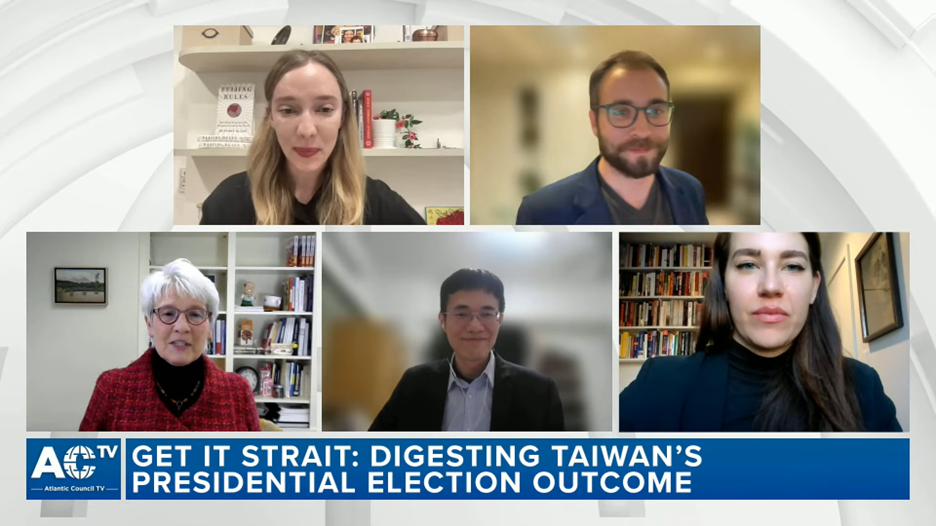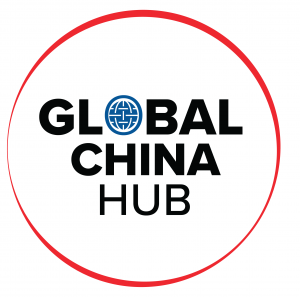Global China Newsletter: A paper leader – China’s inaction in the Middle East dashes misplaced hopes
Subscribe to the Global China Hub
Reading headlines at certain points in 2023, one might have thought China was finally taking on the mantle of a “responsible major power” ready to bolster global security even as the United States withdrew from some of its own responsibilities as the global hegemon.
In no place was this narrative more prevalent than in the Middle East, where China garnered plaudits for brokering a rapprochement between Iran and Saudi Arabia in March (despite its superficial role in the deal). As Global China Hub fellow Tuvia Gering writes, 2023 was supposed to be China’s “big break in the Middle East”. A narrative began to emerge that China was offering a superior alternative to the US-led global order.
Such hopes were woefully misplaced. Most recently, Beijing has refused to take meaningful action in response to Houthis rebels’ escalating attacks on shipping in the Red Sea despite its own interest in maintaining regional stability and critical shipping lanes.
Beijing’s refusal to lead should not be surprising. China reportedly asked Iran to rein in the Houthis, as Washington had requested – but to little effect. Not only does China have limited actual leverage over Iran, as Atlantic Council senior fellow Jonathan Fulton points out, but it is reluctant to use that leverage in a way that requires greater involvement in the region’s messy politics and security affairs. As Fulton writes, “China’s inaction exposes the self-interested and transactional nature of its position in the Middle East.”
Furthermore, Chinese leaders prefer to let Washington bear the burden of managing a regional conflagration and preventing a wider war, even as Beijing capitalizes on US support for Israel’s fight against Hamas as propaganda gold in the Global South.
As we’ve seen in Ukraine, China’s messaging on its contributions to global stability is not matched by action – particularly when that action might help Washington out of a morass that prevents focus on competing with China and tackling challenges in Asia.
In this edition of Global China, our editor-in-chief, Tiff Roberts, tackles some of those issues Washington might address in China’s neighborhood, as well as Beijing’s own mounting economic challenges. Take it away, Tiff!
-David O. Shullman, Senior Director, Atlantic Council Global China Hub
China Spotlight
Under the radar
After the Taiwan election: why economic support must supplement military
Much of the attention on the Taiwan presidential election has focused on how the win by Democratic Progressive Party (DPP) candidate Lai Ching-te, who Beijing has called an “instigator of war,” will impact the world. Many expect a surge in US-China tensions following increased military intimidation from Beijing against Taipei and more military assistance from Washington. Already, the US Navy sent a warship through the Taiwan Strait on January 24, the first since the election.

However, support for Taiwan should not be limited to military aid, as the Atlantic Council GeoEconomics Center’s Clete R. Willems argues. The US must also strengthen Taiwan’s economy through a free trade agreement to “diversify its outbound and inbound trade flows away from China and toward the United States.” China now accounts for 35.2 percent of the island’s exports and 20.3 percent of imports, allowing it to strangle Taiwan’s economy through a trade embargo. Helping Taiwan move to a more diversified economy would lessen this threat.
Beyond the headlines: how the Taiwan People’s Party showing complicates governance
The Global China Hub’s Lev Nachman and Wen-Ti Sung look at how the strong showing in the election by the opposition Taiwan People’s Party (TPP) will affect policymaking. With neither the DPP nor the Kuomintang (KMT) with a majority, the TPP now “plays the role of ‘kingmaker’” and “the incoming president will face greater challenges in securing legislative backing,” they write. “The divided government … threatens to slow down governance.” That could have global implications if it emboldened Beijing to ratchet up economic and military pressure on a divided Taipei.
Economics at home
The weakness of authoritarian nation-building
China, like fellow authoritarian Russia, works to establish national legitimacy by attacking Western democracy as flawed and inherently unstable, in contrast to its supposed better governance. The Jan. 6 insurrection was featured in China’s state-controlled media as evidence of serious flaws in the US system. China also argues its legitimacy is shown by its ability to provide prosperity to its citizens more effectively than democracies.
Research by the Atlantic Council’s Freedom and Prosperity Center shows how Beijing has failed to meet those self-set standards. “China has gone so far as to claim that the CCP under Xi has reinvented and improved on the Western model of democracy” focusing on “human development and prosperity for all,” write the Council’s Dan Negrea, Joseph Lemoine, Patrick Quirk, and Lauren Van Metre. “Beijing has delivered only limited prosperity for its people because it has not closed the gap between the wealthiest and its lower-and middle-income citizens” providing “huge wealth for a small set of predatory elites while failing to generate prosperity for society at large.”
Debt burdens to test social system
The GeoEconomics Center’s Jeremy Mark illustrates the fragility of China’s debt-reliant economic system, which now threatens local governments in China ability to build infrastructure, invest in technology, and provide social services. However, according to Rhodium Group estimates, four-fifths of more than 2,000 corporate entities called local government financing vehicles (LGFVs), which borrow from banks to issue bonds, face difficulties covering interest payments and are at risk of default. He writes that “increasingly cash-strapped local governments will be hard pressed to meet the needs of their citizens. A failure to provide for its people’s material wellbeing would also hurt China’s efforts to convince the Global South of the superiority of its system.
The news that embattled property developer Evergrande was ordered into liquidation by a Hong Kong court on January 29, as I discuss further in NPR’s All Things Considered, also suggests China’s economy is not sustainable long term. The fear is that Evergrande will be the first of many struggling developers to go belly up, putting unprecedented new pressures on China’s already shaky financial system. It also is reminiscent of another debt-strapped Chinese company – Guangdong International Trust & Investment Corp – whose demise raised global concerns back in 1998.
As we wrote in Businessweek at the time: “if companies assumed to have the backing of provincial authorities – if not central ones – go under, foreign investors will be forced to reassess the creditworthiness of all Chinese borrowers.” That’s a consideration the world now must revisit.
China Global: a budding ally in Mongolia?
Throughout its history land-locked Mongolia has had to play a balancing act in its relations with its two giant neighbors, Russia and China. Ulaanbaatar even developed its so-called “Third Neighbor” foreign policy (with the third country often the US), referring to the need to find allies other than Russia and China.
But if you can’t beat them, join them. While attending Davos, Mongolia’s Prime Minister Luvsannamsrai Oyun-Erdene announced he is hoping to organize a summit with Russia and China, with the goal of strengthening economic cooperation between the three countries. China by far is Mongolia’s biggest trading partner, and a big buyer of its rich natural resources including coal and will be sure to welcome the closer relationship with its northern neighbor.
But don’t expect the new grouping to be embraced by all Mongolians. As I saw when I spent a summer living in Ulaanbaatar in 1993 and on later visits, Mongolians have a deep-rooted fear of other countries, and particularly China, having undue influence over them. On a reporting trip there in 2011, I saw how protestors had set up yurts or gers outside the parliament, demanding the government ban foreign companies from its mining industry (the ban never was put in place.)
ICYMI
- On December 20, the Indo-Pacific Security Initiative and Global China Hub jointly held an event titled “Countering Beijing’s economic coercion in the Indo-Pacific” as part of the Cross-Strait Seminar Series, held in partnership with the Taipei Economic and Cultural Representative Office in the United States.
- The GeoEconomics Center’s Niels Graham and Hung Tran wrote about how the dedollarization trend is not driven just by geopolitics, but also by interest rate differentials. Strikingly, they note that “for the first time in nearly 20 years, it is substantially cheaper to conduct short-term borrowing in renminbi (RMB) rather than dollars.”
- On January 23, the Atlantic Council’s Eurasia Center and the International Tax and Investment Center presented the findings of their new report, which analyzes the state of rare earth deposits in Central Asia and the geopolitical opportunities for the region through maximizing their development and export.
- Forward Defense released its final report for the Atlantic Council Commission on Defense Innovation Adoption, where they argue how the Department of Defense must accelerate defense innovation adoption from the leading edge of the private sector to compete with China, which integrates commercial technology into its defense sector through Civil-Military Fusion.
Welcome to our newest fellows!

Global China Hub
The Global China Hub researches and devises allied solutions to the global challenges posed by China’s rise, leveraging and amplifying the Atlantic Council’s work on China across its 15 other programs and centers.


Follow us on Twitter @ACGlobalChina